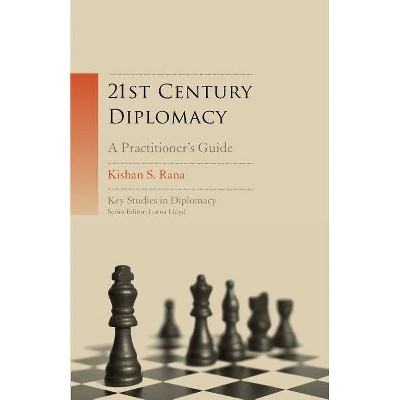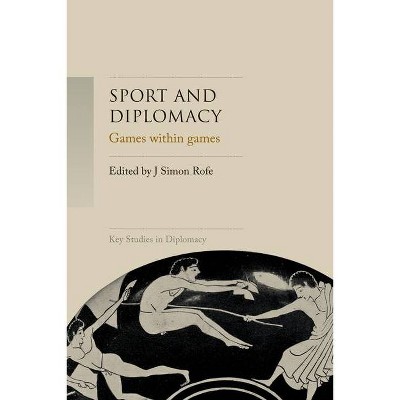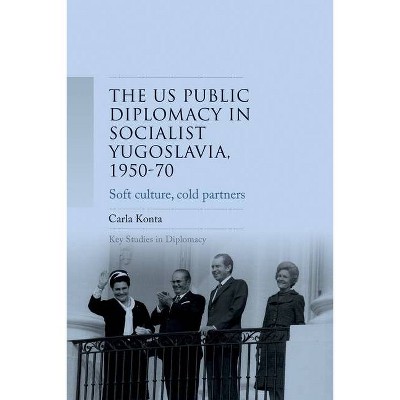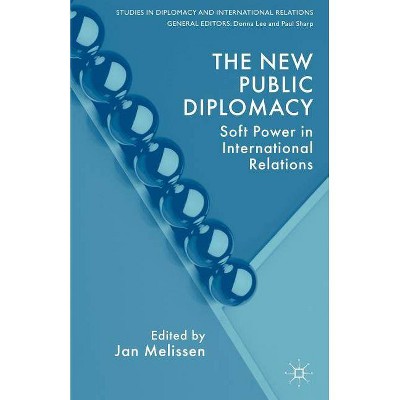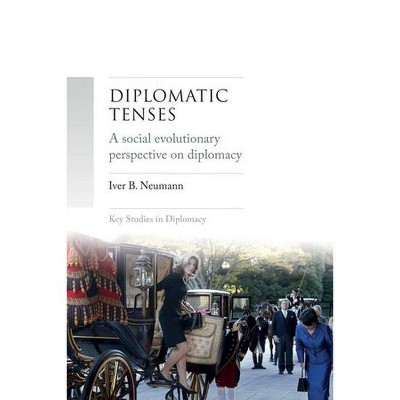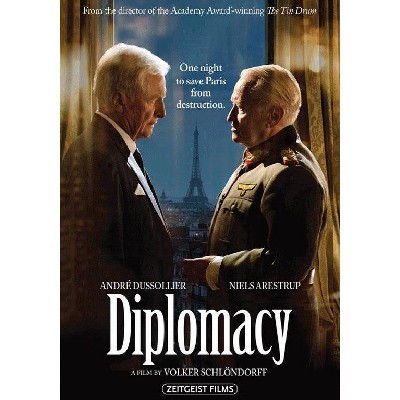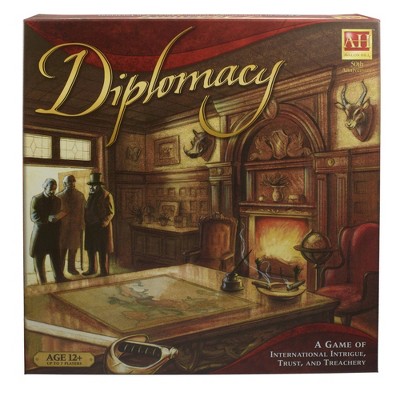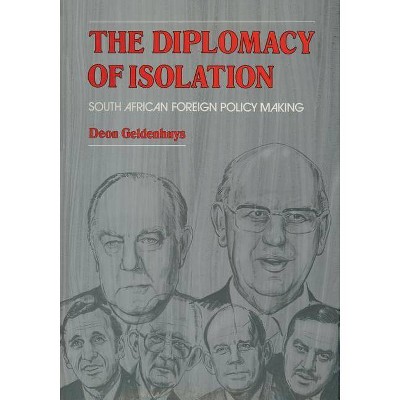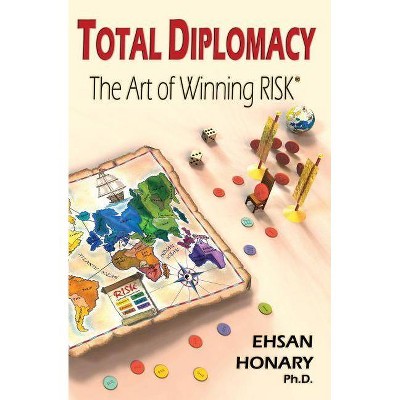The diplomacy of decolonisation - (Key Studies in Diplomacy) by Alanna O'Malley (Paperback)
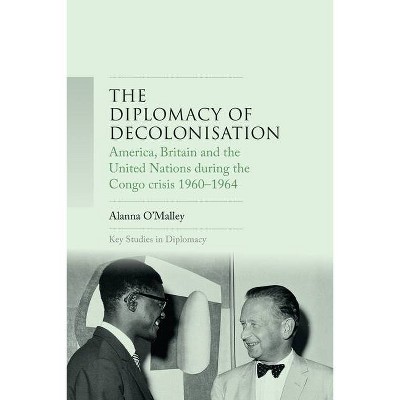
Similar Products
Products of same category from the store
AllProduct info
<p/><br></br><p><b> About the Book </b></p></br></br>The book reinterprets the role of the United Nations during the Congo crisis from 1960-1964 by presenting a multidimensional view of the organisation.<p/><br></br><p><b> Book Synopsis </b></p></br></br><p>The Congo Crisis of 1960-64 exploded tensions between newly independent countries and their former colonisers and changed the way America, Britain and the UN approached the process of decolonisation.<br /> Often seen as a Cold War proxy conflict, Alanna O'Malley demonstrates that the Crisis was in fact a multi-dimensional confrontation demonstrating the potential of and the limitations to UN agency and Afro-Asian solidarity. <br /> <br /> <br /> The UN mission became a battleground for competing ideas and visions of the world order as newly independent African and Asian states sought to redress the inequalities created by colonialism, the US and UK sought to maintain the status quo, and UN Secretary-General Dag Hammarskjöld tried to reconcile these two contrasting views, before dying in a plane crash in 1961. <br /> <br /> <br /> Lucid, deeply researched and vividly written, this book shows how attempts to direct the UN mission led to the creation of permanent mechanisms at the UN through which the Afro-Asian bloc shaped the course and the pace of decolonisation and gave new impetus to a Third World critique of imperial internationalism.</p><p/><br></br><p><b> From the Back Cover </b></p></br></br>The Congo Crisis of 1960-64 exploded tensions between newly independent countries and their former colonisers and changed the way America, Britain and the UN approached the process of decolonisation. Often seen as a Cold War proxy conflict, Alanna O'Malley demonstrates that the Crisis was in fact a multi-dimensional confrontation demonstrating the potential of and the limitations to UN agency and Afro-Asian solidarity. The UN mission became a battleground for competing ideas and visions of the world order as newly independent African and Asian states sought to redress the inequalities created by colonialism, the US and UK sought to maintain the status quo, and UN Secretary-General Dag Hammarskjöld tried to reconcile these two contrasting views, before dying in a plane crash in 1961. Lucid, deeply researched and vividly written, this book shows how attempts to direct the UN mission led to the creation of permanent mechanisms at the UN through which the Afro-Asian bloc shaped the course and the pace of decolonisation and gave new impetus to a Third World critique of imperial internationalism.<p/><br></br><p><b> Review Quotes </b></p></br></br><br>'Anyone who wants to understand the Congo crisis of the early 1960s must read this impressive book.' Chris Saunders, Emeritus Professor, University of Capetown 'An excellent study of the Congo crisis from the point of view of the UN and with an eye to transatlantic exchanges. O'Malley's extensive research in the UN, American, and British archives offers a complete picture of bilateral and trilateral relations.' Alessandro Iandolo, St Catherine's College, University of Oxford 'A sharp, perceptive, multi-level analysis of one of the most difficult crises the UN had to manage. O'Malley weaves together empire and decolonisation, internationalism and the Cold War, great power rivalry and public diplomacy, to give us an original, inspiring representation of the complexity - and fickleness - of international politics.' Federico Romero, Professor of History of Post-War European Cooperation and Integration, European University Institute 'A thought-provoking and valuable new emphasis on the broad themes of decolonization, the UN and the Congo at the macro level, O'Malley also provides lively, engaging discussions of innumerable examples at the micro level by drawing on global sources gleaned from a dizzying array of at least 15 archives in at least 6 different nations.' Andy DeRoche, Front Range Community College 'You will be hard-pressed to find a more provocative, original interpretation of the Congo crisis. In Alanna O'Malley's hands, the Congo is an entrepôt, illuminating the United Nations' autonomy in international affairs while highlighting the tensions that coursed through the North Atlantic and Afro-Asian alliances. <i>Diplomacy of Decolonisation</i> is indispensable to students of African international history, and essential reading for anyone who wants to understand the Cold War and decolonisation. ' Ryan Irwin, University at Albany 'This latest work on the complex and controversial Congo crisis is clear, well researched and expertly put together, while providing some fresh insights and coverage of the Stanleyville hostage crisis.' John Kent, London School of Economics 'Alanna O'Malley has made an important contribution to our understanding of the Congo Crisis as a turning point of international politics. The book's primary strength lies in exploring, juxtaposing, and connecting the larger historical forces that shaped, and were themselves shaped by, the conflict: decolonization, the rise of the non-aligned bloc and the UN, shifting us policy towards Africa, and the decline of European colonial politics in an era of mounting Cold War tensions. ... A well-crafted and sober analysis of multilateral diplomacy that resists the temptation to delve into plots, conspiracy theories, and behind-the-scenes machinations.' Volker Prott, Aston University, <i>Diplomatica </i><br><p/><br></br><p><b> About the Author </b></p></br></br><br><strong>Alanna O'Malley</strong> is Lecturer in History at Leiden University<br>
Price History
Price Archive shows prices from various stores, lets you see history and find the cheapest. There is no actual sale on the website. For all support, inquiry and suggestion messages communication@pricearchive.us
